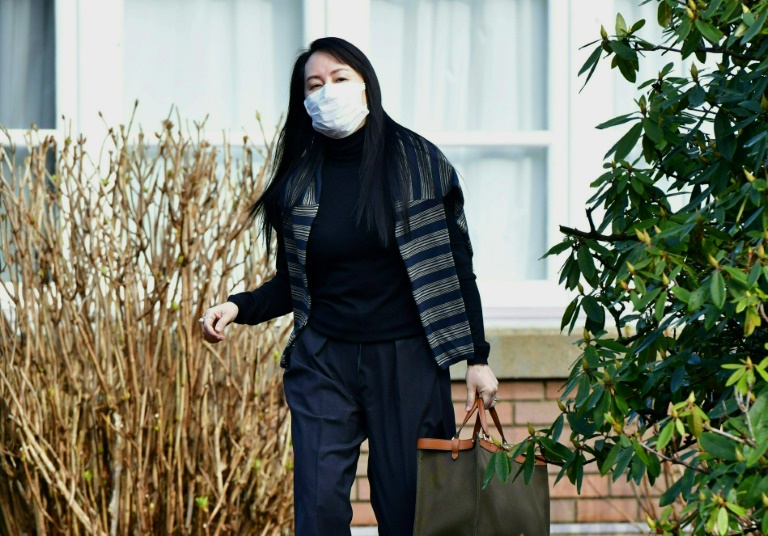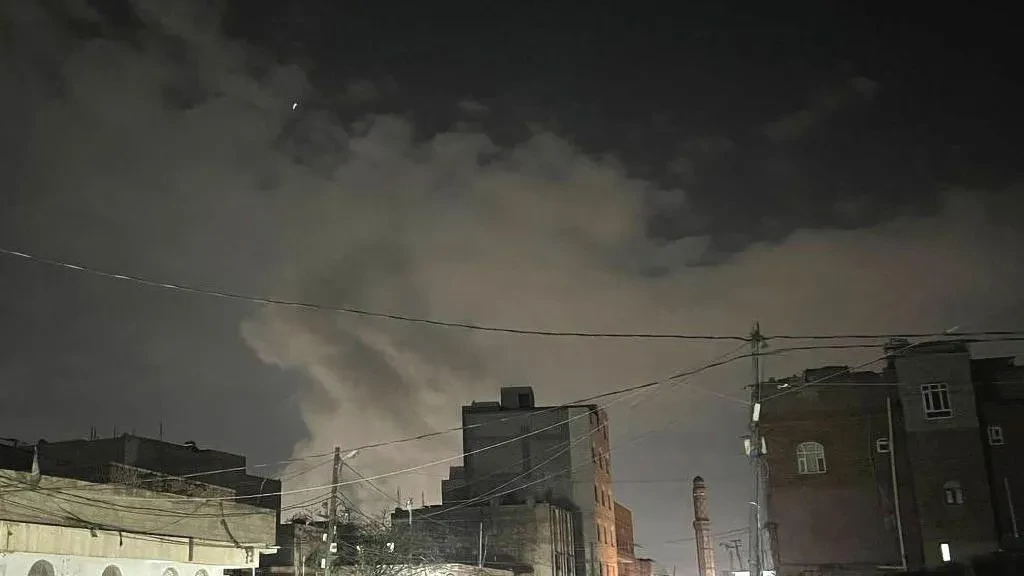Huawei exec's extradition fight enters final round in Canada

Chinese Huawei Technologies executive Meng Wanzhou was back in a Canadian court Monday to fight a final round against extradition to the United States, her lawyers challenging the crux of the case -- that she allegedly hid business dealings in Iran.
The daughter of Huawei founder and chief executive Ren Zhengfei faces charges in the United States of bank fraud and conspiracy over the commercial activities of a former Huawei subsidiary alleged to have violated US sanctions against Iran.
Meng, 49, is accused of having lied to the HSBC investment bank about Huawei's relationship with subsidiary Skycom, putting the bank at risk of violating US sanctions against Iran as it continued to clear US dollar transactions for Huawei.
If convicted, she could face more than 30 years in a US prison. Meng and Huawei both deny the charges. Huawei is the world's largest telecommunications equipment manufacturer.
As the case enters its final months, Meng's defence lawyers are set to assert that abuses by Canada and the United States have denied her the right to a fair process.
On Monday, defense lawyers argued that Meng could not have deceived HSBC executives at a 2013 Hong Kong tea house meeting because the bank "fully knew" Huawei still effectively controlled Skycom, despite having sold it in 2007 to shell company Canicula Holdings.
"The bank knew that Skycom sold its shares to Canicula, and the bank knew Huawei controlled Canicula's bank account... (and) Huawei continued to control Skycom from 2007 onward," defense lawyer Frank Addario told the Supreme Court of British Columbia.
He said US claims that Meng "was deceptive about Skycom" or "was trying to hide something about that relationship" are "misleading and unreliable."
Crown attorney Robert Frater countered that these arguments should be made at trial, and not at the hearing.
- HSBC dragged into fight -
Huawei last month sought access to HSBC's internal documents -- including a copy of Meng's full presentation to bank executives -- to support the claim, but a British court rejected the disclosure application.
The case has roiled Canada's diplomatic relations with China, its second largest trading partner behind the United States.
Two Canadian citizens -- former diplomat Michael Kovrig and businessman Michael Spavor -- remain imprisoned in China.
They were detained days after Meng's December 2018 arrest during a stopover in Vancouver, and after Beijing threatened Canada with severe consequences over what Vice Foreign Minister Le Yucheng called Meng's "unconscionable" detention.
Ottawa has long maintained Kovrig and Spavor were "arbitrarily" jailed in retaliation for Meng's arrest, while affirming the independence of Canada's judicial system in dealing with the US extradition request.
Beijing, meanwhile, has called the charges against Meng "completely political," and part of a plot to crush its top global technology firm. Washington last year banned US semiconductor chipmakers from selling to Huawei, which it accuses of stealing American trade secrets.
- 'Bartering chips' -
The latest hearings begin just days after US President Joe Biden publicly demanded the two Canadians' release, saying Tuesday during a virtual meeting with Canadian Prime Minister Justin Trudeau, "Human beings are not bartering chips."
Ottawa also recently unveiled a declaration signed by 58 countries against "arbitrary
detention in state-to-state relations."
And when the Canadian parliament denounced China's treatment of its ethnic Uighurs as genocide, Beijing angrily slammed it as a "malicious provocation."
"The Canadian side's attempt to pressure China by using 'Megaphone Diplomacy' or ganging up is totally futile and will only head towards a dead end," China's embassy in Canada said. In the extradition hearings, Meng's lawyers are expected to also argue that former US president Donald Trump "poisoned" the case when he said he might intervene in her prosecution in exchange for Chinese trade concessions.
Lawyers for Canada's attorney general have urged the judge to dismiss the allegations, saying in court filings that the remarks were made by "a president no longer in office, about a possible intervention in this case that never occurred."
Defence lawyers will then charge that Meng's rights were violated during her Vancouver airport detention and interrogation and that the United States misled Canada when it requested her arrest by omitting possibly exculpatory portions of her 2013 presentation to HSBC.
They will also say that extraditing her would break international law because none of Huawei's alleged crimes had any direct connection to the United States. Meng remains under house arrest in her Vancouver mansion. Her extradition trial will resume on Wednesday and is scheduled to wrap up in mid-May, barring any appeals.





Leave Comment